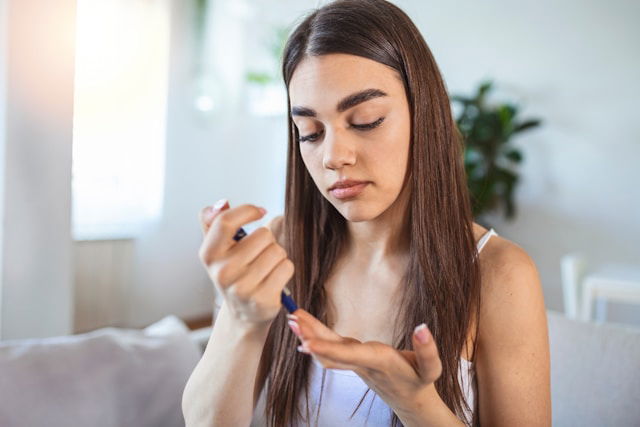
High blood sugar, also called hyperglycemia, can be dangerous if left untreated. For people with type 2 diabetes or those who do not take insulin, it’s important to know how to bring blood sugar down safely and effectively when it gets too high.
While insulin is often used in emergencies or by people with type 1 diabetes, there are several proven methods to lower blood sugar without insulin.
The first and most effective way is through physical activity. Exercise helps your muscles use sugar (glucose) for energy, which naturally lowers the amount of sugar in your blood. A brisk walk, light jog, or bike ride for 15 to 30 minutes can help reduce blood sugar quickly.
In fact, studies show that moderate exercise can improve insulin sensitivity for hours after the activity. However, if your blood sugar is extremely high (for example, over 300 mg/dL), or if you have ketones in your urine, you should not exercise, as this can make things worse. Always check with a doctor first.
Drinking water is another simple and helpful method. Water helps flush out excess sugar through the kidneys. When you’re dehydrated, your blood sugar can become more concentrated, so staying hydrated can help balance things out. Aim to drink water regularly throughout the day and more if your blood sugar is elevated.
Food choices also matter. Eating foods that are low in carbohydrates and high in fiber can slow down how quickly sugar enters your bloodstream. Non-starchy vegetables like broccoli, spinach, and cucumbers are good options.
Healthy fats and proteins, such as nuts, eggs, or chicken, can also help stabilize blood sugar. If your sugar is high, avoid sugary drinks, white bread, pastries, and processed snacks, as they can cause it to spike even more.
One interesting remedy supported by some studies is apple cider vinegar. Taking one or two tablespoons mixed in water before meals may help lower blood sugar levels. Vinegar appears to slow digestion and improve how your body uses insulin.
However, it’s important to check with a healthcare provider before trying this method, especially if you’re taking medications, as vinegar may interfere with them.
Another natural helper is cinnamon. Research has shown that cinnamon may help improve insulin sensitivity and lower fasting blood sugar levels. It’s not a quick fix, but including cinnamon in your diet regularly might help with overall blood sugar control.
Managing stress is also important. When you’re stressed, your body releases hormones that can raise blood sugar levels. Techniques like deep breathing, meditation, or taking a walk outside can help lower stress and, in turn, reduce blood sugar.
Some over-the-counter supplements like berberine and magnesium have shown promise in small studies for helping lower blood sugar. However, supplements should only be used under a doctor’s guidance to avoid side effects or interactions with other medications.
While these methods can help lower blood sugar quickly and naturally, they are not a substitute for long-term diabetes management. It’s always best to work with a healthcare team to find a treatment plan that works for you. Keeping track of your blood sugar, staying active, eating well, and managing stress can go a long way in keeping your levels in check.
If you care about blood sugar, please read studies about why blood sugar is high in the morning, and how to cook sweet potatoes without increasing blood sugar.
For more information about brain health, please see recent studies about 9 unhealthy habits that damage your brain, and results showing this stuff in cannabis may protect aging brain, treat Alzheimer’s.
Copyright © 2025 Knowridge Science Report. All rights reserved.



